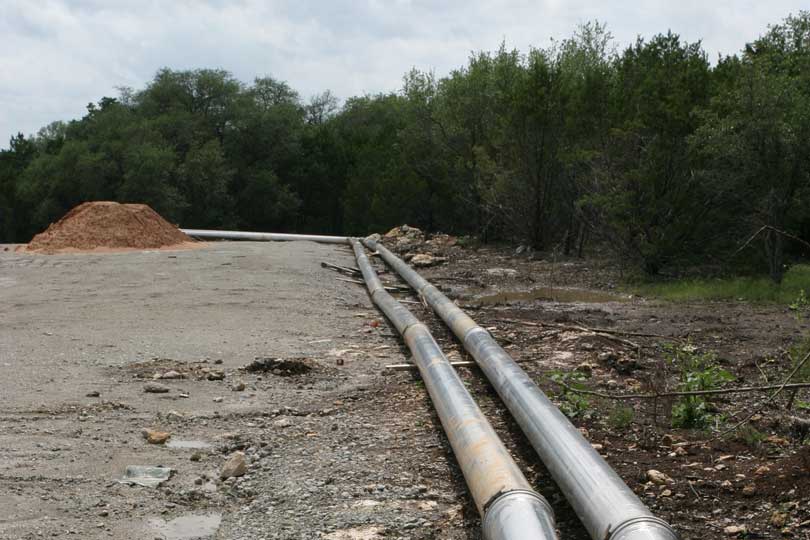By Jennifer Dorsett
Field Editor
State law should mandate an eminent domain process between private companies and landowners that is fair and transparent, according to Texas Farm Bureau (TFB) leadership.
TFB and other private property rights proponents are gearing up to fight for fair eminent domain law in the upcoming Texas legislative session.
TFB state directors Mark Chamblee and Neil Walter testified last month before the Texas House Land and Resource Management Committee.
They asked legislators to draft regulations that will ensure consequences for lowball offers, require public meetings for a transparent process and establish a minimum of standard easement terms in every contract.
“Let’s not put landowners in a fight with one hand tied behind their back,” Chamblee, who also serves as TFB’s vice president, said.
Currently, entities may make a low offer to a landowner without penalty or ramifications. Some companies frequently make lowball offers in hopes the landowner will accept that first deal.
It is the landowner’s responsibility to hire appraisers, attorneys and other experts to determine fair value. Entities may also threaten a lawsuit to force the landowner’s hand.
Chamblee said many TFB members don’t have the resources to fight back. He asked the committee to create penalties for entities who make unfairly low offers, deterring companies from making those types of deals as their first move.
Another issue addressed during their testimonies is the absence of any official process in condemnations by private corporations.
The Texas Department of Transportation and other public entities must hold local public meetings whenever planning and implementing any major project requiring eminent domain.
“Why aren’t private companies held to the same standard?” Chamblee asked. “A clear and public explanation of the project and standard contract terms would give landowners more confidence in fair, informed deals.”
The final suggestion proposed by TFB includes minimum standard easement terms.
In his testimony, Walter said his personal experience with a company wanting to lay a pipeline on his land was anything but clear-cut and fair.
“There were no landowner protections in the initial offer,” Walter said. “It took me aback.”
As Walter found out, landowner protections are often purposely left out of contracts and only added when the landowner protests.
“When I asked about this, the landman said the pipeline company wants to get every easement protection they can in favor of the company, not the landowner,” he said. “That’s not how we should do business in the state of Texas.”
In the 2019 legislative session, TFB will continue fighting for members’ rights to a fair and transparent process.
For more information or to find out how you can get involved, visit texansforpropertyrights.com.


I feel many of you are not understanding that there is a big push to use eminent domain for public trails. They also use flood control as another reason to take private land for trails. The Spring Creek Greenway is a good example. Sold to the pubic on protecting the environment and flood control. Preached not to build on it and they built several buildings that flooded several times in the last few years and turned beautiful private land into a public dump in the name of saving the environment.
A level playing field shall always give equal weight to the values of the land owner and the organization requesting approval to enter, disturb, and restore lands privately and publicly held. Value for the permanent taking of a right-of-way must include future hazards that accompany the right-of-way as well as diminished value to the land owner’s future use and enjoyment associated with the change in use of the property. Change is change and must be addressed in terms of the land owners current full access and their future access, due to the right-of-way’s acquisition and all potential use restrictions.
Once they file eminent domain they have the property and you have to get permission from the condemning company to do something with your land
Atmos energy is laying a pipe line across me for about a mile and half based on a 1952 right of way that doesn’t confine them to a width they can drive anywhere they desire. Damages are paid for “growing crops and fences “ grass land is not considered a crop. I didn’t know they were even coming till I drove by and two dozers were sitting on the land. We have ask about damages several times and they tell us “we will decide what the damages are when we finish “. We the land owners are renters are being run over by this pipe line company. They have me blocked out of my land. I have ask three times for them to remove the things blocking me. Each time they say ok but nothing has been done